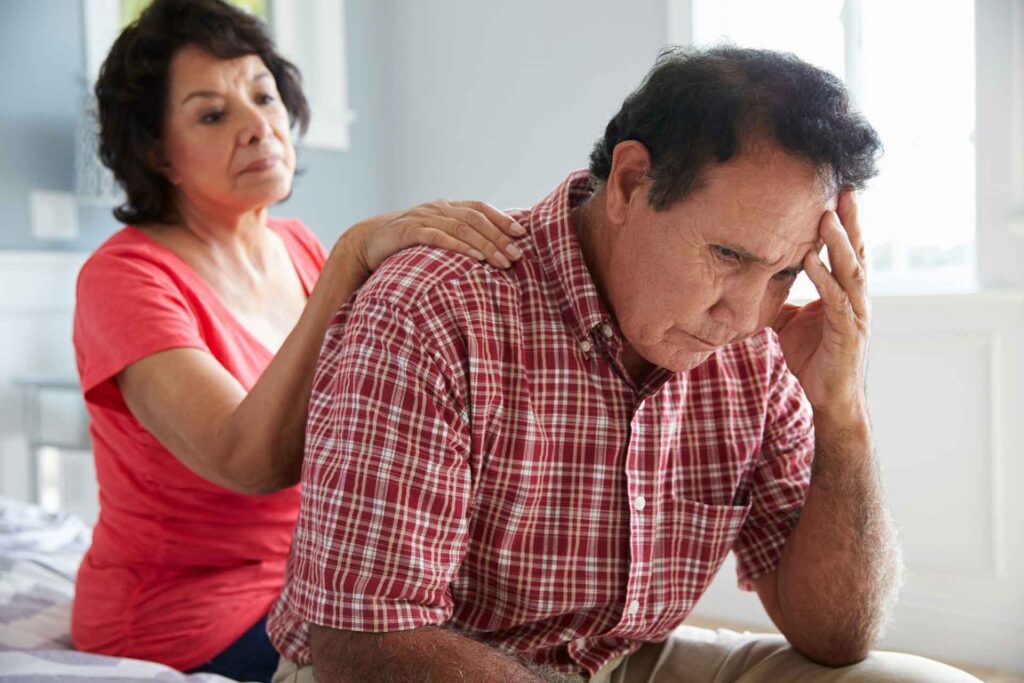Sometimes, your elderly loved ones may start to worry about things more and more often. If this is a recent change in their behavior, and they also seem nervous and frantic, they may be suffering from an anxiety disorder. Your loved one isn’t alone, though. Millions of older adults are experiencing and suffering from an anxiety disorder, especially as they age.
If you’re the family caregiver for your elderly loved one, then it’s important for you to know why your loved one may be more prone to anxiety and what symptoms to look out for. This can help you provide the proper care your loved one needs.
Why Are Older Adults More Prone to Anxiety?
Anxiety disorders are some of the most common mental disorders that older adults have. The National Institutes of Health released a report showing that between 3 and 14% of older adults are affected by anxiety, while the Geriatric Mental Health Foundation says between 10 and 20% are affected. Mental Health America suggests that over 27% of older adults are experiencing anxiety. And many older adults are living with anxiety but may not know because it is left untreated.
Older adults are more prone to having an anxiety disorder due to the stressors and changes that come with aging. Seniors experience more losses, suffer from more pain, experience chronic conditions, and are likely to be on more medications than those younger than them. All of these life changes, which are typically experienced later versus earlier in life, can cause anxiety disorders to develop in seniors.
Anxiety Symptoms
There are many types of anxiety disorders, which means there is an abundance of symptoms as well. Whether your loved one may have a social anxiety disorder, a panic disorder, or a general anxiety disorder, it’s best not to let symptoms go unnoticed.
Some common symptoms of anxiety include:
- Shakiness
- Difficulty breathing
- Dizziness
- Lightheadedness
- Chest pain
- Headaches
- Vision problems
- Muscle soreness
- Fatigue
- Sweating
- Nausea
- Digestion issues
- Confusion
- Irrational thoughts
- Forgetfulness
- Nightmares
- Irritability
Other symptoms can include the avoidance of activities, changes in weight, sleep disturbances, withdrawal, obsessive thoughts or behavior, and the abuse of substances. It’s important to remember that just because all of these are symptoms, doesn’t mean your loved one will be experiencing any or all of them. Elders can still experience anxiety without showing many or any symptoms. But if you do notice your loved one exhibiting any of these symptoms, it’s a good idea to talk to their doctor about what you notice.
Symptoms left untreated can escalate and cause more issues in older adults, such as weakened immune systems, high blood sugar, ulcers, and more. Anxiety symptoms can also lead to higher possibilities of mental health complications, which is why if you notice any of these symptoms in your loved one, you should consult with their doctor as soon as possible.
What Can You Do to Help?
If you think your loved one is suffering from anxiety, your first step should be to talk with their doctor about it. Connecting your loved one with an experienced mental health professional can help in many ways, including diagnosing them with the correct disorder and setting them on the right path to treatment.
Medical professionals can also help treat symptoms and review any medications your loved one may be taking that could contribute to their anxiety. Sometimes anxiety can be a side effect of medications, and in that case, a medical professional could help.
Sometimes simple lifestyle changes can also help elders who are suffering from anxiety. Improving their day-to-day quality of life, such as changes to their diet, exercise, yoga, and working in the garden or taking regular walks, can help manage their feelings of anxiety. It can also help minimize the effect anxiety has on them and their life. By helping to implement these positive changes to their lifestyle, you can help them cope with their anxiety disorder.



